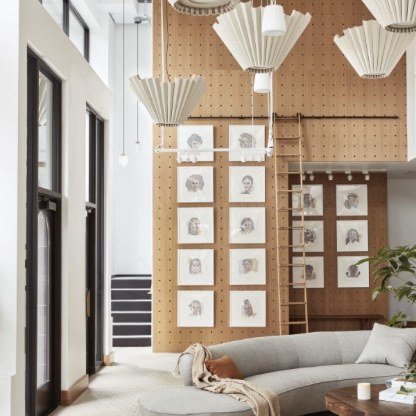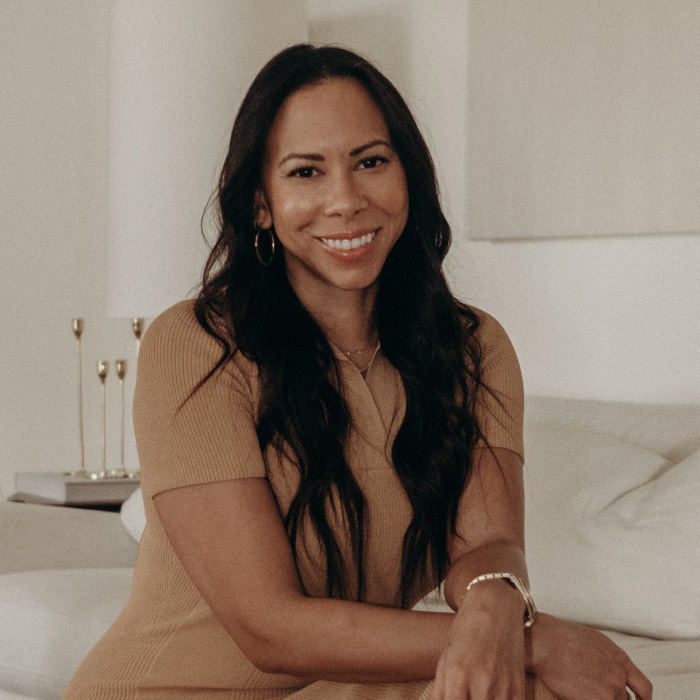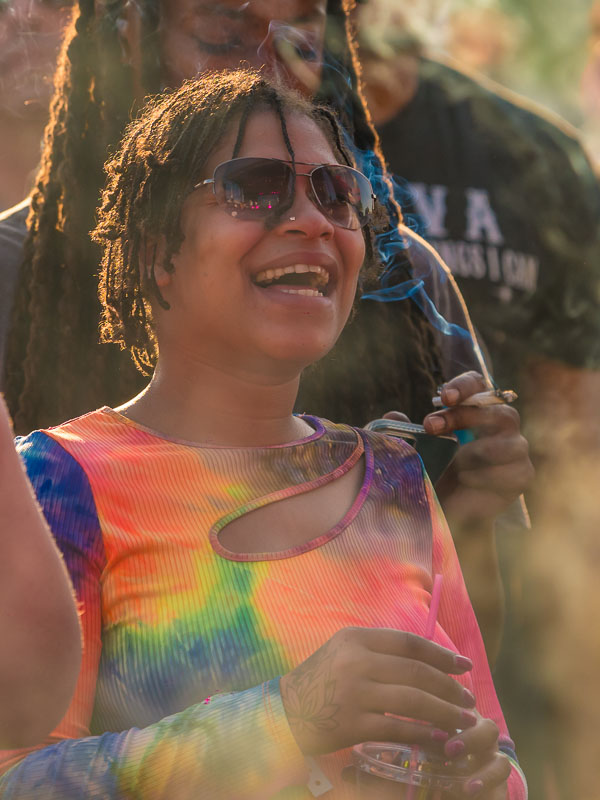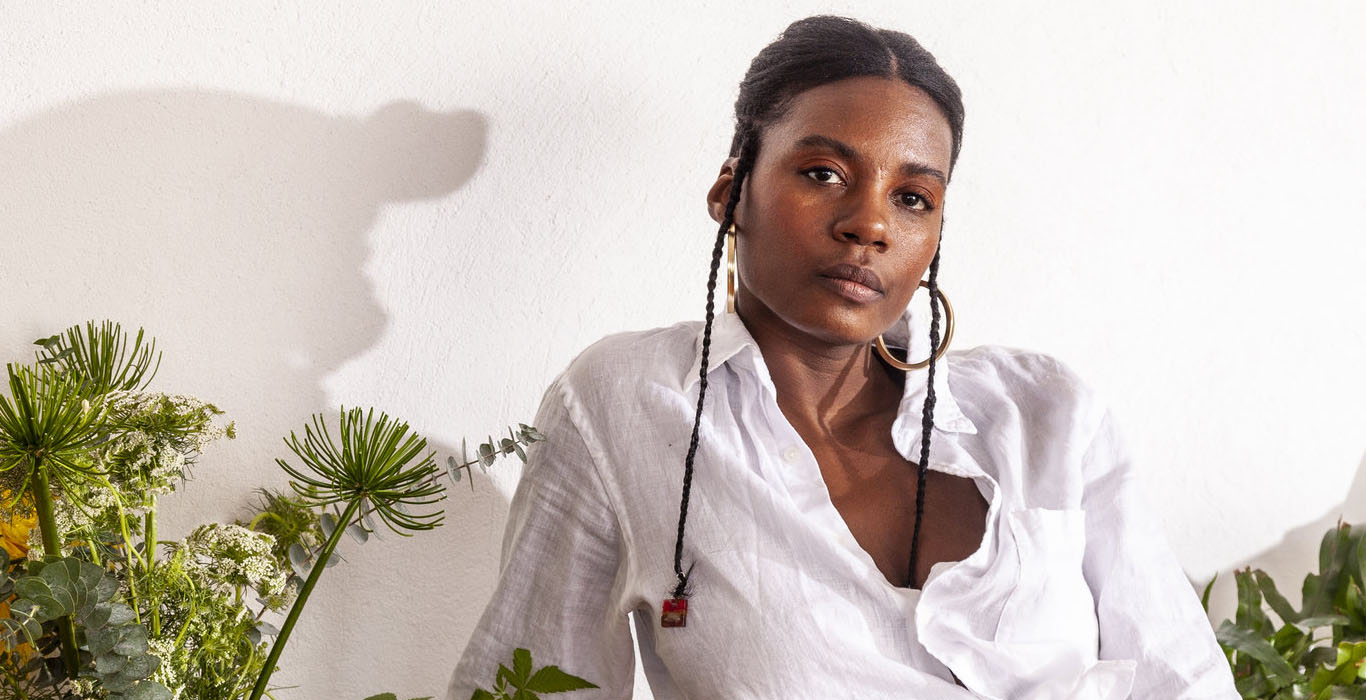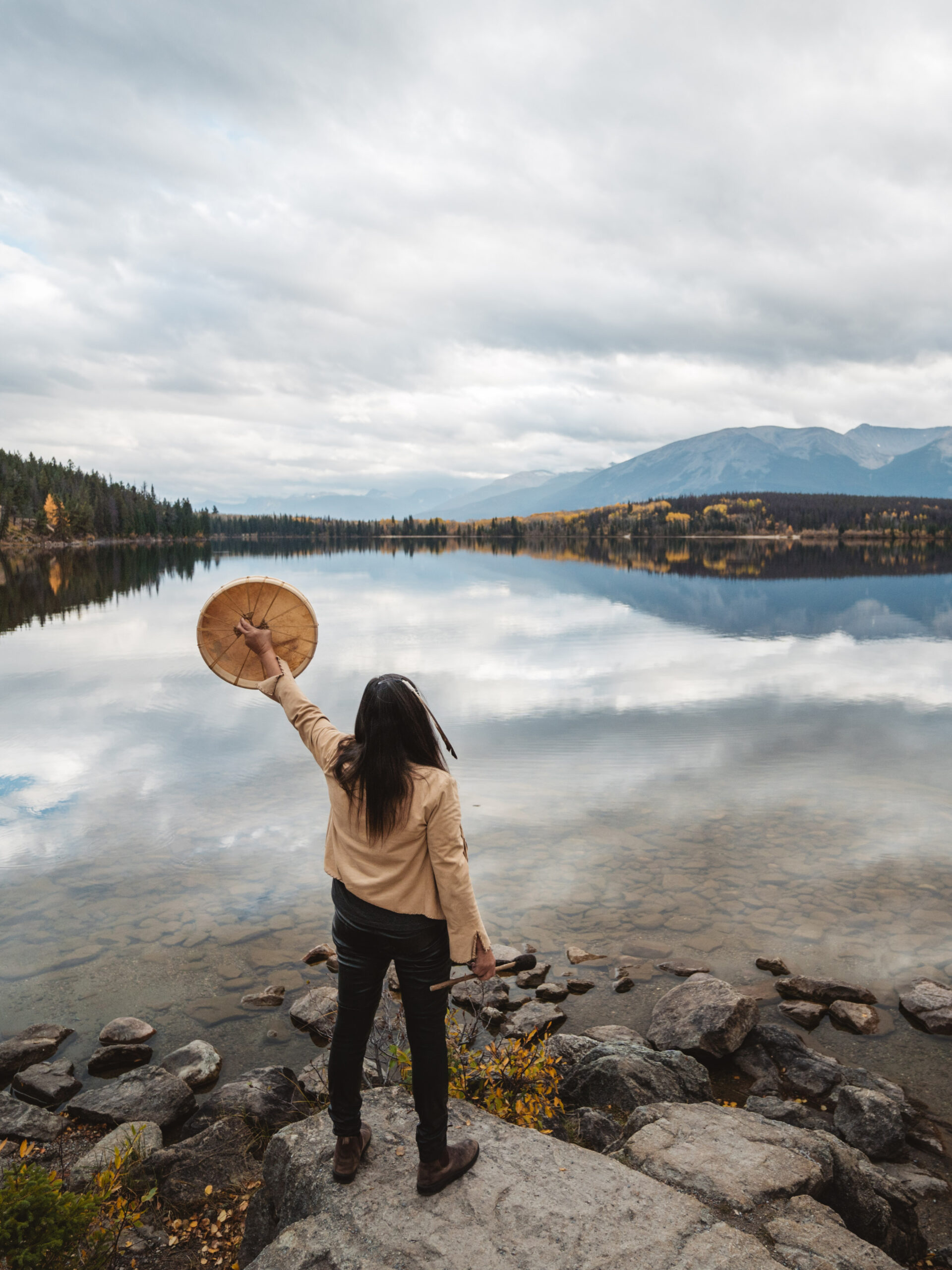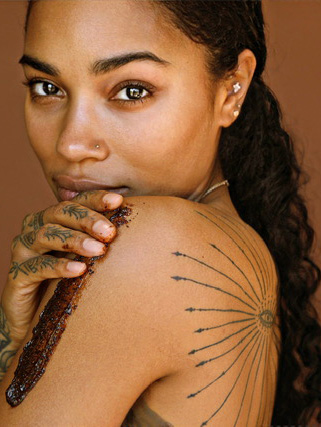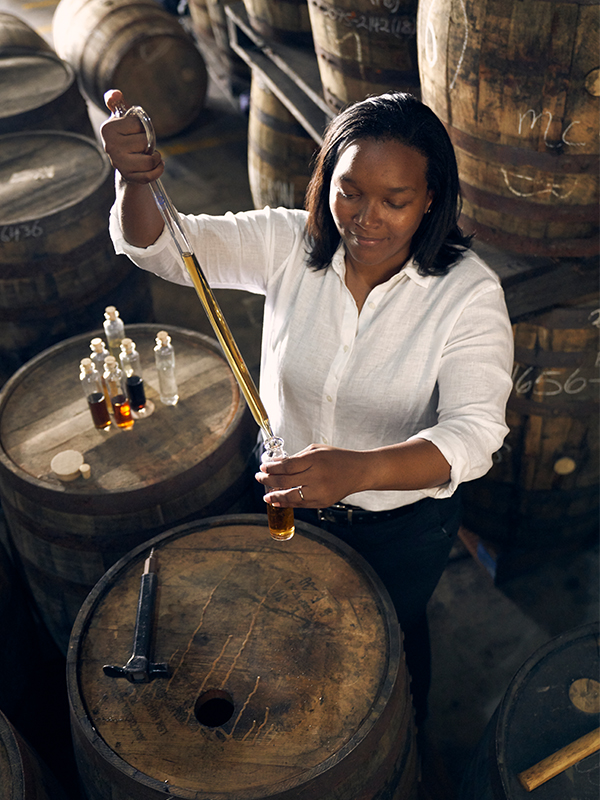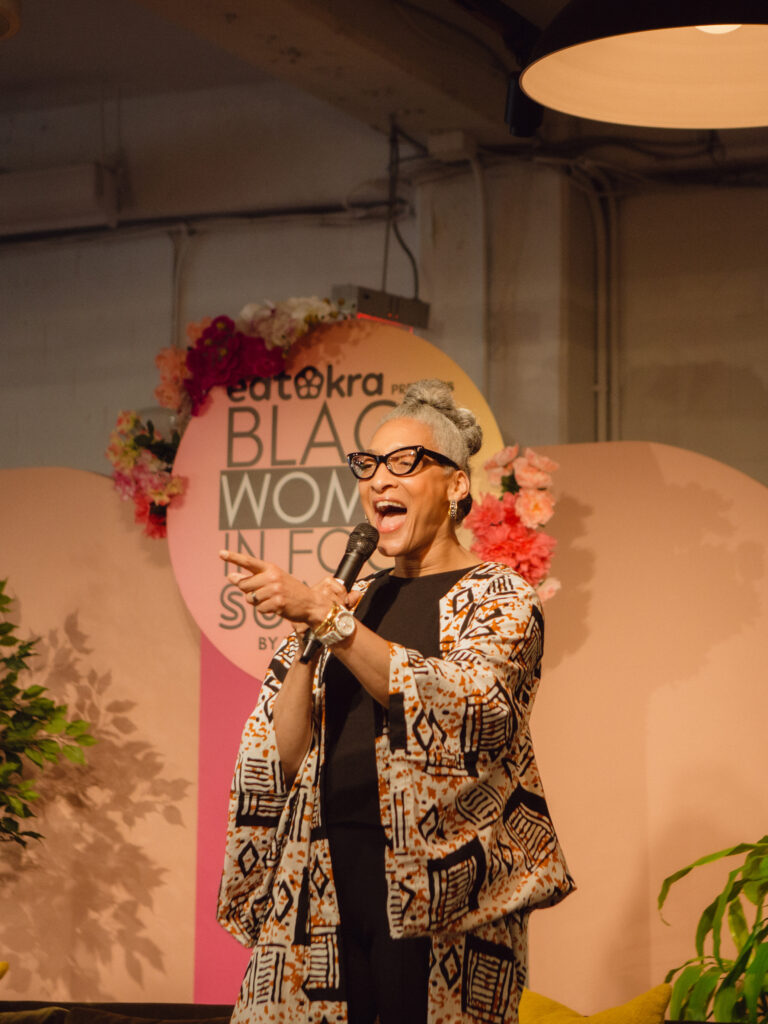“The war on drugs is still alive and well in many places,” says Caroline Phillips.
It’s a big part of the reason Phillips created the National Cannabis Festival. The two-day-long event is one of the largest Black women-led festivals in the country and among the largest ticketed cannabis events on the East Coast. People from all over the country come to explore cannabis as medicine, business, and culture. Naturally, it’s also a party: 2Chainz and Juicy J will perform this year.
But the festival isn’t just about glitz and smoke. The legal marijuana market is expected to reach a value of nearly $71 billion by 2028, as reported by CNBC, yet Phillips is one of less than 2 percent of the cannabis industry’s Black business owners. In this world, the road to success—especially as a Black woman—is no easy feat. Pair this with an ongoing war on drugs that’s led to mass incarceration of mostly Black and Brown people, and you get one daunting reality: the cannabis industry isn’t exactly the most accessible—or desirable—for people of color.
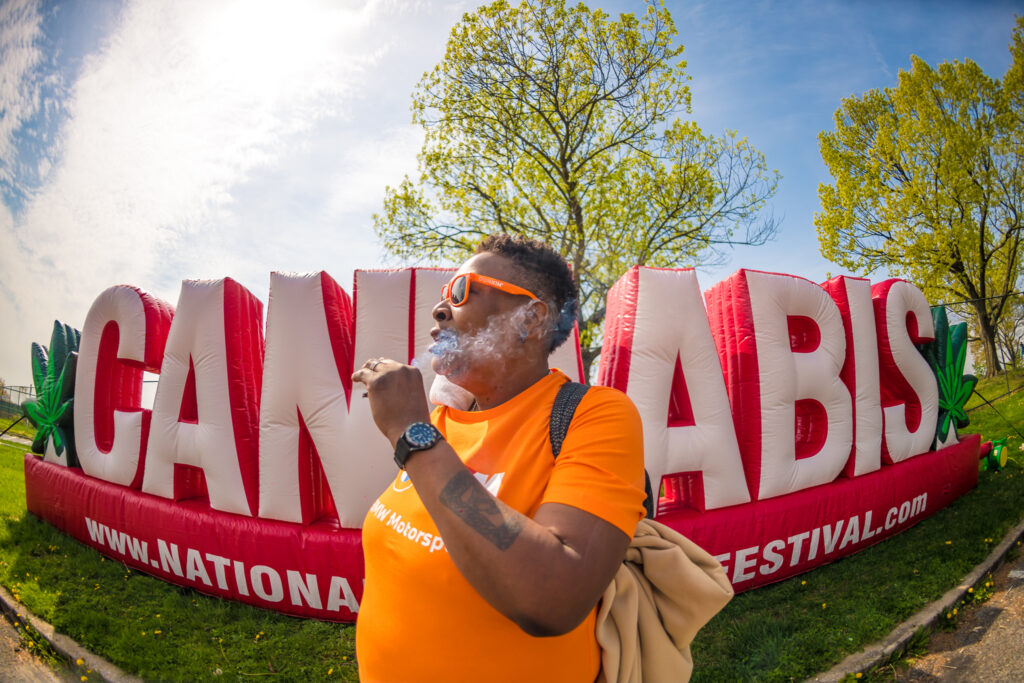
“I think what advocates are waiting for are regulations at the local level that encourage and make it a reality for Black and Brown business owners to be able to enter the industry and create sustainable business models,” says Phillips. “But right now, it doesn’t necessarily feel [equitable].”
Starting a business in cannabis, as it is, isn’t easy. There’s the complicated legality of it—being legal for adult use in some states, medically legal in others, but federally illegal in general. Many banks won’t accept cannabis businesses as clients. Payment processors may decline offering their services. On top of the labyrinth of logistics, it takes a lot of money to start a cannabis business. Think hundreds of thousands of dollars, minimum, in cash.
Kika Keith is the CEO of Los Angeles’s first Black-woman owned dispensary, Gorilla Rx. In 2017, she became active in working groups mobilizing to create “pathways for generational wealth and community reinvestment,” inspired to help people like her family, who she says was traumatized by the fate of her stepfather. He served seven years in jail for selling a dime bag—$10 worth of weed.
On her journey, barriers to success came into play: She says her cannabis business lost over $350,000 from navigating bureaucratic delays, changing requirements and predatory investors. After years of frustration, Keith spearheaded a coalition at the Social Equity Owners and Workers Association and, alongside other LA-based cannabis entrepreneurs, carried out a lawsuit against Los Angeles in April 2020 for an unfairly implemented license application process.
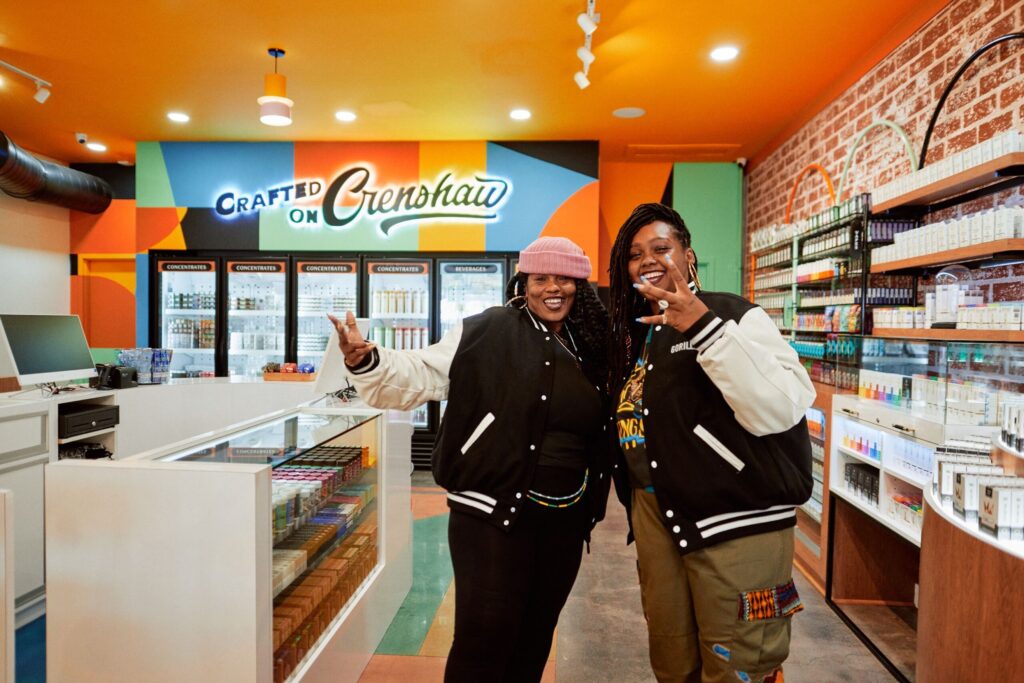
Initiatives like Cannaclusive have stepped in to point businesses in the right direction. The organization created a database of BIPOC cannabis businesses to make them and their leaders easier to find and contact. “Typically, people do not invest in BIPOC-owned companies, especially if they’re Black,” says Kassia Graham, Cannaclusive’s director of community & strategy. “We have to acknowledge that it costs money to be there. And how are we going to get that?”
Phillips says leaning on peers and collectives—like Supernova Women, the Minority Cannabis Business Association and Minorities for Medical Marijuana—helps to “keep going even when it seems like insurmountable challenges are ahead.”
Mennlay Golokeh Aggrey, author of The Art of Weed Butter and co-host of “Broccoli Talk,” agrees. “The only reason I have been able to continue to exist for 18 years in the cannabis space is because of community,” she tells Sweet July. “They have held me down since day one—both offline before social media and online through sharing, discourse, and the support of all of my entrepreneurial and creative endeavors… we still, unfortunately, live in a world of racial capitalism— making survival as a Black femme entrepreneur particularly arduous.”
The key to moving the needle is also research, says Paulette Simone, who runs @canna.heals and the Bud Talk podcast to educate holistically about the plant. Having a background as a therapist, social worker and doctoral student, she puts emphasis on the importance of better understanding the multifaceted use of the plant. “We do want to be talking appropriately about the drug and saying what it can do and what it can’t do,” she says.
Progress is on the horizon. On April 20, as part of programming, The National Cannabis Festival will host a congressional forum at the Capitol with Senate leader Chuck Schumer. Phillips says having conversations like this gives her hope about legalization.
“I think we’re starting to see more voices speaking out about drug policy reform in general that we wouldn’t have seen a couple of years ago,” says Phillips. “[Lawmakers] understand it’s going to be a new economy. And they want to make sure that it’s regulated. And it’s our job as advocates to make sure that it’s regulated in a fair and equitable way.”
Tickets to the festival start at $35 and increase over time, in addition to VIP packages and other offerings. “It’s always been important that the festival is affordable to people in our community,” says Phillips. “Because if we don’t see our community at the festival, then there was no point in having a festival in the first place.”
For Black women like Phillips, Keith and Simone, it’s not just about business. Their work is inextricably embedded in resisting the current state of the legal cannabis industry that’s majority white and preceded by the war on drugs. Issues of equity in the industry are layered and complex. The road ahead remains replete with challenges, but these women are in it for the long haul. They are—bluntly—bosses.

